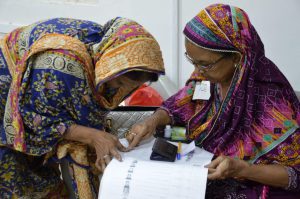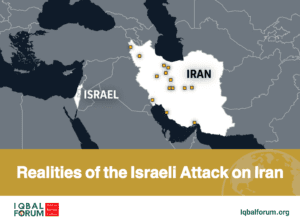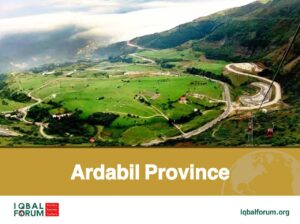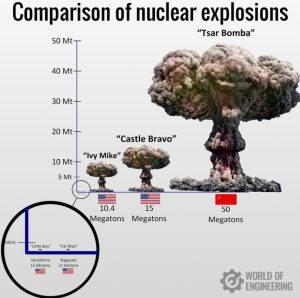Beware the resource curse
Pakistani policymakers hold great hopes for the extraction of mineral resources to transform the economy, aiming to break free from the IMF and the shackles of unending austerity. At a recent summit organized by Pakistan’s Ministry of Petroleum under the banner of “Dust to Development,” civilian and military leaders unveiled an economic revival plan that seeks to attract substantial foreign direct investment (FDI) for mining minerals estimated at a staggering $6.1 trillion. The vision encompasses modern mining techniques unlocking significant copper reserves in Balochistan, potentially leading to a thriving copper industry. Additionally, through lithium extraction facilities and high-quality lithium carbonate production, Pakistan aims to secure its position in the clean energy supply chain and expand exports to burgeoning clean energy markets.
While the potential of this vital sector is significant, the rosy promises of prosperity painted by various summit speakers are a long way from being realized. Moreover, the resource-driven path to development carries inherent challenges that must be addressed. The resource curse, a phenomenon observed in countries abundant with natural resources, often leads to paradoxical outcomes: sluggish economic growth, authoritarian governance, and underdeveloped institutions. As renowned economist Jeffrey Sachs once warned, “The resource curse is a daunting obstacle for many developing countries striving for economic growth.” Developing nations possessing vast mineral and hydrocarbon wealth frequently remain ensnared in poverty due to corruption, resource concentration among the elite, lack of democratic accountability, and even violent conflicts stemming from disputes over resource ownership.
A poignant case is that of Mozambique, where the discovery of extensive natural gas reserves in 2010 ignited hopes of a brighter future. After more than a decade of relying on foreign aid to recover from a bloody civil war, an opportunity emerged to achieve financial independence. The government celebrated the discovery, proclaiming that revenues from the extracted fuel would transform Mozambique, one of the world’s poorest countries, into a middle-income nation with robust healthcare and education. Unfortunately, the resources have proven to be more of an economic curse than a blessing. Mozambique’s aspirations to become a middle-income nation have been marred by corruption scandals and insurgency, all before a single drop of gas was exported. This sobering tale, along with several other similar examples of countries blessed with vast stores of natural resources and wealth that fail to improve the general welfare of their people, underscores the cautionary note that Pakistan must heed to avert the resource curse.
If Pakistan is to ensure that the exploitation of mineral wealth serves as a boon for development rather than disillusionment, it must strengthen its institutional and legal frameworks to provide comprehensive safeguards for managing resource wealth. These institutions must be empowered to mitigate corruption and rent-seeking by both powerful foreign investors and local influential parties. Additionally, the country must implement mechanisms to avoid perpetually borrowing against future mineral revenues and prioritize reducing its unsustainable debt burden.
The local population must perceive themselves as equal beneficiaries of wealth generated from mineral extraction.
Javed Hassan
Learning from Norway’s experience provides valuable insights. Norway established credible institutions and structures to provide a high degree of transparency in negotiations for investment arrangements into its oil resources. This approach fostered a favorable investment environment for foreign investors, minimizing rent-seeking and corruption, while also attracting sustainable investment. Norway successfully evaded the resource curse by utilizing oil windfalls to improve non-oil sectors’ production, the standard of living, and national savings. The Nordic country’s democratic processes have played an important role in ensuring accountability that has benefitted both foreign oil investors and domestic constituencies.
It is also imperative that violence over access to resources even before they ever leave the ground is prevented. This is most likely to arise when the indigenous population believes it has ancestral ownership rights over areas from where the resources are being extracted by outsiders and feel deprived of the benefits. Safeguarding their rights against exploitative resource extraction that causes environmental damage, property and livelihood losses, and a sense of deprivation is crucial. The local population must perceive themselves as equal beneficiaries of wealth generated from mineral extraction. As economist Hernando de Soto states, “Property rights are critical for economic development.” Ensuring the rights of those impacted by mineral extraction is paramount.
In Pakistan’s pursuit of mineral wealth to fuel economic transformation, exercising caution is paramount. Although still a long way from fruition, the resource curse looms large, as countries blessed with riches often stumble in development. Corruption, inequality, and conflicts hinder their progress.
Mozambique’s tale, once hopeful with gas reserves, now stands as a warning. To avert such pitfalls, Pakistan must fortify safeguards against corruption, borrowing, and violence. Drawing from Norway’s success, transparency and equity must prevail. Windfalls generated must be utilized to reduce the country’s indebtedness and increase overall productivity in non-mineral sectors. Also, upholding indigenous rights is essential for equitable progress. The path to sustainable growth and prosperity lies in learning from history’s lessons







